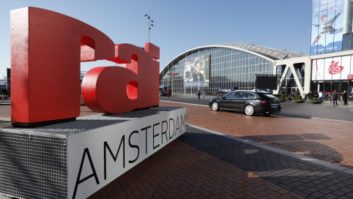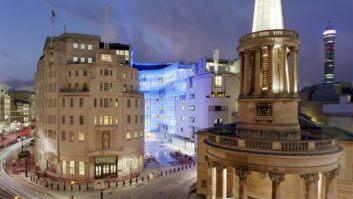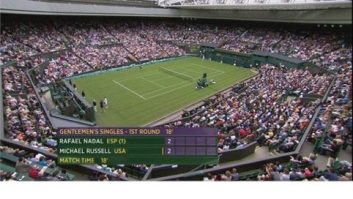
As revealed exclusively by sister title PSNEurope, BBC Sport has been planning for its broadcasting of the forthcoming London 2012 Olympics since 2010, and, of course, audio is key to the high-quality coverage expected by many millions of sports fans. The brief was clear enough: to design and implement the infrastructure and technology to deliver stereo and 5.1 crystal-clear sound to its audiences. At the heart of the sound planning is Peter Bridges (pictured), BBC Studios and Post Production’s lead sound supervisor for London 2012. He highlights the technical challenges his team of 19 faces, and how they will overcome them to ensure the London 2012 Olympics will be heard and enjoyed by millions of BBC viewers – through their television sets (for both scheduled and on-demand TV), online and via mobile devices. Bridges’ role also includes the daunting task of designing the communications system which allows all production and technical staff to speak to each other in an organised manner. Communications systems are a key part of any broadcast TV facility, but especially so for a large-scale live sporting event such as the Olympics. As a rights-holding broadcaster, BBC Sport’s sound team, lead by Bridges, will be based in the International Broadcast Centre (IBC) in the Olympic Park in Stratford. At any one time they will receive up to 46 feeds from the host broadcaster, Olympic Broadcasting Services (OBS), along with feeds from their own cameras and commentary microphones at the venues, and feeds from their own TV studio based in the Olympic Park. As Bridges explains, “With so many feeds coming into the IBC at any one time we need a very organised way of dealing with them so that they can quickly be available to any of our galleries at the IBC and also to our VT area.” Virtually all of the BBC’s TV coverage will originate in one of three main production galleries at the IBC. Each is equipped with its own state-of-the-art sound control room designed by Bridges specially for this event. Each control room will feature a 62-fader Studer Vista 9 console along with a Yamaha 01V96 grams mixer and SpotOn audio playback software. The Vista 9 will output both a 5.1 and stereo mix, and monitoring will be via a Genelec 5.1 loudspeaker system. On top of the main broadcasts on BBC One and BBC Three, they are rolling out an extra 24 digital channels which will be populated with specific event coverage. Each of these channels will carry its own mix of host clean effects along with BBC commentary. Bridges continues: “Having extra channels carrying dedicated coverage of particular events is not new for the BBC, but for London 2012 we’re providing coverage of every Olympic sport live from every venue, every day, so the scale is unprecedented.” The communications system is based on four Riedel Artist 128 matrices fibre-linked together to effectively provide a 512 x 512 port matrix. These ports are shared between communications panels at the IBC and 4-wire ports providing connectivity with the venues. “I’ve been involved in several other major sporting events including World Cups, European football championships, Commonwealth Games and Winter Olympics – but London 2012 will give audiences by far the most interactive and immersive experience that I have ever seen. The design of the sound and communications systems has been two years in the making, but then it’s not every year that we cover an Olympic games on home soil,” concludes Bridges. www.bbc.co.uk/sportwww.london2012.com







